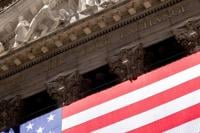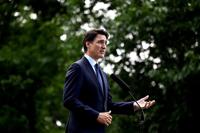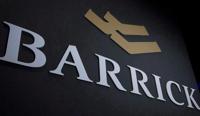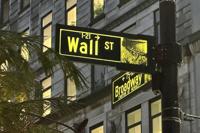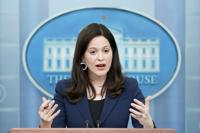NEW YORK (AP) — Wall Street edged lower following a rally that sent it roaring 16% higher for the year so far. The S&P 500 slipped 0.2% Wednesday, edging down from its highest level since April 2022. The Dow fell 129 points, or 0.4%. The Nasdaq gave back 0.2%. Other markets around the world fell more sharply following the latest discouraging signal from China’s economy. Growth in China’s services industry slowed by more than expected last month. The U.S. economy, meanwhile, has remained stronger than feared. Minutes from the Federal Reserve’s latest policy meeting showed that some central bank officials wanted to raise rates in mid-June.
THIS IS A BREAKING NEWS UPDATE. AP’s earlier story follows below.
NEW YORK (AP) — Wall Street is drifting lower Wednesday following a rally that had sent it roaring 16% higher for the year so far.
The S&P 500 was 0.1% lower in afternoon trading and edging down from its highest level since April 2022. The Dow Jones Industrial Average was down 118 points, or 0.3%, at 34,299 as of 3 p.m. Eastern time, and the Nasdaq composite was down 0.1%.
Other markets around the world fell more sharply following the latest discouraging signal from China’s economy. Growth in China's services industry slowed by more than economists expected last month. It’s the latest evidence showing the world’s second-largest economy is stumbling in its recovery following the removal of anti-COVID restrictions.
The U.S. economy, meanwhile, has remained stronger than many investors feared. It’s defied predictions for a recession because of a job market that’s remained remarkably solid despite much higher interest rates meant to bring down inflation.
A report on Wednesday showed growth for U.S. factory orders held steady in May, though economists expected to see an acceleration.
Hope is rising that inflation is cooling enough to get , which undercut inflation by slowing the entire economy. At its last meeting, the Fed decided to hold rates steady, the first time in more than a year that it refrained from hiking rates.
The vote was unanimous, though, to hold the federal funds rate steady within a range of 5% to 5.25%, up from virtually zero early last year.
Much of Wall Street expects the Fed to raise rates later this month. Less certain is whether a second hike will hit by the end of the year, as the Fed has been hinting. In the end, that may not matter much, said Ross Mayfield, investment strategist at Baird.
“The move from zero to 5% is all that matters," he said. “The Fed has either gone too far and damaged the economy, and we just haven’t seen it yet, or they haven't.”
“We’ll see that in due time,” he said, saying one or two more increases won't have that much of an impact by themselves.
That could leave the U.S. stock market stuck in a holding pattern as everyone waits to see if the long-predicted recession does happen or not. The upcoming earnings reporting season could offer some clues, with companies telling investors how much profit they earned during the spring.
Mayfield said he's particularly interested to hear from companies that sell directly to consumers, to see whether the main pillar holding up the U.S. economy is weakening at all.
Yields were mixed in the bond market. The yield on the 10-year Treasury rose to 3.94% from 3.86% Monday, when bond trading ended early ahead of the Independence Day holiday. The 10-year yield helps set rates for mortgages and other important loans.
The two-year Treasury yield, which moves more on expectations for the Fed, was holding steady at 4.94%.
On Wall Street, shares of union representing about 340,000 of its workers. Their current contract expires at the end of the month, and Teamsters members last month voted in favor of a strike authorization.
Companies that do a lot of business in the China region were also weak. Las Vegas Sands and Wynn Resorts, which get significant chunks of revenue from Macau, both fell at least 4.5%.
On the winning side was Meta Platforms. that appears to mimic Twitter. It rose 3.3%, adding to a stellar year where it's already soared 145%.
In stock markets abroad, indexes slumped 1.6% in Hong Kong and 0.7% in Shanghai following the discouraging economic data from China. That added to worries about high tensions between China and the United States, the world’s two largest economies.
Beijing this week announced restrictions on exports of , two metals used in making semiconductors and solar panels. That came ahead of Treasury Secretary Janet Yellen’s as part of U.S. efforts to restore strained relations.
Stocks fell 0.3% in Japan, 0.6% in South Korea, 0.8% in France and 0.6% in Germany.
___
AP Business Writers Matt Ott and Joe McDonald contributed.


